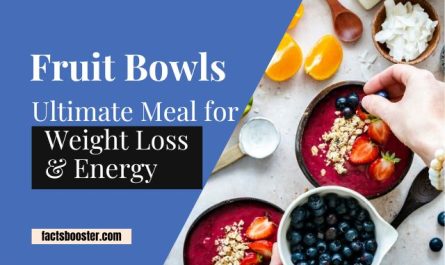In today’s health-conscious world, many are seeking alternatives to traditional sugar. Whether you’re managing diabetes, aiming for weight loss, or simply adopting a healthier lifestyle, natural sweeteners have become a popular choice.
These alternatives satisfy your sweet tooth and offer various health benefits. In this article, we’ll explore the best natural sweeteners you’ve been missing out on!
What Are Natural Sweeteners?
Natural sweeteners are sugar substitutes derived from plants, fruits, or other natural sources. Unlike refined sugars, these sweeteners often have lower calorie counts and a minimal impact on blood sugar levels.
This makes them ideal for diabetics, those on a weight-loss journey, or anyone looking for healthier sugar alternatives. Natural sweeteners are also considered more nutrient-rich, providing additional health benefits beyond just sweetness.

Benefits of Natural Sweeteners
Switching from traditional sugar to natural sweeteners can offer a range of health advantages:
- Blood Sugar Management: Many natural sweeteners don’t spike blood sugar levels, making them suitable for those with diabetes or anyone aiming to maintain stable blood sugar levels.
- Lower Calorie Intake: These sweeteners often contain fewer calories, helping with weight management and reducing overall caloric intake.
- Nutrient-rich: Some natural sweeteners, such as those derived from fruits or plants, provide vitamins, minerals, and antioxidants, making them a healthier choice.
- Improved Digestive Health: Certain natural sweeteners contain prebiotics that can promote healthy gut bacteria.
- Weight Loss Support: Due to their low-calorie nature, natural sweeteners are perfect for weight loss solutions without sacrificing sweetness.
Read more:
The Best Natural Sweeteners
If you’re ready to switch to healthier sugar alternatives, here are some of the best natural sweeteners you should try:
1. Stevia
Stevia is derived from the leaves of the Stevia rebaudiana plant. It’s 200-300 times sweeter than sugar but contains virtually zero calories. This makes it a popular sweetener for diabetics, as it doesn’t raise blood sugar levels. Stevia can be used in baking, beverages, and even desserts. (1)
2. Monk Fruit Sweetener
Monk fruit, also known as Luo Han Guo, is a small green fruit native to China. Monk fruit sweetener is low in calories and doesn’t affect blood sugar, making it ideal for diabetic recipes. It also has antioxidants that provide additional health benefits. Great for tea, coffee, smoothies, and sauces. (2)
3. Erythritol
A naturally occurring sugar alcohol found in some fruits and fermented foods. Erythritol contains 70% of the sweetness of sugar but only a fraction of the calories. It also has no impact on blood sugar levels, making it an excellent blood sugar-friendly sweetener. Works well in baked goods and sugar-free desserts. (3)
4. Xylitol
Another sugar alcohol, xylitol is found in many fruits and vegetables. Xylitol has 40% fewer calories than sugar and doesn’t spike blood sugar levels. It’s also beneficial for dental health, as it can help prevent tooth decay. Ideal for chewing gum, candy, and baked goods. (4)
5. Coconut Sugar
Made from the sap of the coconut palm, coconut sugar is a popular natural sweetener with a low glycemic index. While it has a similar caloric content to regular sugar, coconut sugar is packed with minerals like potassium, iron, and zinc, making it a more nutrient-rich option. Suitable for baking, beverages, and cooking. (5)
Sweeteners to Avoid
1. Aspartame
Aspartame is an artificial sweetener commonly found in sugar-free drinks and low-calorie foods. Although it contains nearly zero calories, long-term use has been associated with potential health risks such as headaches, digestive issues, and possible neurological concerns. Some studies raise questions about its overall safety. Found in diet sodas and sugar-free snacks, but due to health concerns, it’s best to avoid frequent consumption. (6)
2. Saccharin
Saccharin is one of the oldest artificial sweeteners, commonly used in processed foods and drinks. Saccharin is very sweet but often leaves a bitter or metallic aftertaste. Early studies suggested it might be linked to health problems, although these conclusions remain controversial. Found in sugar-free drinks and processed foods, but many opt for more natural alternatives due to taste and safety concerns. (7)
3. Sucralose
Sucralose is an artificial sweetener that’s several hundred times sweeter than sugar. While sucralose is used widely in low-calorie and sugar-free products, some studies indicate that it may break down at high temperatures, releasing harmful compounds. There are also reports of digestive issues with prolonged use. Used in diet beverages, snacks, and baked goods, but it may not be suitable for high-temperature cooking or long-term consumption.
Why Choose Natural Over Artificial Sweeteners?
While both natural and artificial sweeteners are designed to replace sugar, natural sweeteners offer several advantages.
Artificial sweeteners, such as aspartame or saccharin, may have fewer calories, but they are often associated with potential health risks and negative side effects, including digestive issues and long-term health concerns.
On the other hand, natural sweeteners are derived from plant-based or organic sources, which makes them a cleaner, safer option for those who prioritize health.
Additionally, many artificial sweeteners can cause cravings for sweet foods, leading to overeating. Natural sweeteners, especially those with a lower glycemic index, help manage blood sugar levels more effectively without triggering such cravings.
How to Find the Right Natural Sweetener for You
Choosing the right natural sweetener depends on your health needs, taste preferences, and how you plan to use the sweetener. Here are a few tips:
- For Diabetics: If you’re managing diabetes, look for natural sweeteners that don’t raise blood sugar levels, such as stevia, monk fruit, or erythritol.
- For Weight Loss: Low-calorie sweet options like stevia, monk fruit, and erythritol are excellent choices if you’re looking to cut calories.
- For Baking: Some natural sweeteners, like coconut sugar or xylitol, work well in baked goods without compromising texture or flavor.
- Organic and Natural Diets: If you prioritize organic options, choose sweeteners like coconut sugar or organic stevia to ensure you’re consuming the cleanest, most natural products available.
Conclusion
Natural sweeteners are an excellent alternative to refined sugar, offering numerous benefits for those with diabetes, people looking to lose weight, or anyone seeking healthier sugar alternatives.
With options like stevia, monk fruit, erythritol, xylitol, and coconut sugar, you can easily find a sweetener that fits your lifestyle and dietary needs. As you transition from traditional sugar, these natural sweeteners will not only satisfy your sweet cravings but also contribute to a healthier, more balanced diet.


